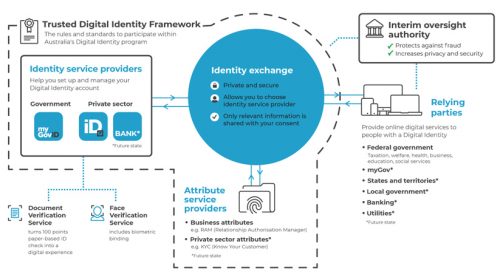By Lou Ann Anderson | Watchdog Arena
The tone was low-key, but stakes were high on Monday as Texas local governments squared off against taxpayer advocates in a Senate Committee on State Affairs hearing on taxpayer-funded lobbying.
SB 1862 seeks to not only stop local government entities’ practice of hiring lobbyists, but to also make violations a Class B misdemeanor. Bill sponsor state Sen. Konni Burton, R-Colleyville, calls it a needed reform to the current system of intergovernmental lobbying.
The bill largely addresses third parties being paid by public tax revenue to influence legislation or to generate good will in order to influence future legislation.
While public entities routinely hire individual lobbyists or lobbying firms, additional influence emanates from local governments’ financial support of organizations like Texas Association of Counties, Texas Municipal League, Texas Association of School Boards and Texas Association of School Administrators. Often billed as “support service” resources, these groups’ well-funded lobbying arms are formidable.
In laying out the bill, Burton explained how local governments who impose a tax would be prohibited from paying third party lobbyists to advocate for or against legislation. And while the bill prohibits use of public funds for paying dues to associations that employ or contract with lobbyists, it does not stop elected officials or local government employees from any activity including legislative testifying, so long as that activity doesn’t constitute grounds for registration as a lobbyist under current rules.
The bill doesn’t preclude local government associations from informing their members about proposed legislation, communicating with members on merits of bills, or directly communicating with legislators as a resource witness.
According to Burton, the Texas Senate Research Center found earlier this year that 732 individual lobbyists were registered to do business on behalf of city or county governments. That equates to 42 percent of the total 1,741 lobbyists registered with the Texas Ethics Commission.
Noting the number doesn’t include school, water, or other local districts (the number has been requested, but not received), Burton said that conservatively suggests “over 50 percent of registered lobbyists in Texas represent some form of local government.”
“More often than not, local government lobbyists appear on behalf of their clients to argue for expanded authority, the establishment of new governmental entities, against restrictions of their authority and against limitations of their power to tax,” Burton said.
“Interests local governments have in legislation should be communicated by and through their officials,” Burton maintained. “To allow local governments to continue hiring outside lobbyists to influence legislation works against the interests of ordinary Texans.”
“Constituents have seen their tax money used to aggressively advocate against them.” Burton asked, “Why should ordinary Texans be forced to compete with Austin lobbyists on local issues?”
Burton concluded SB 1862 would provide the public greater confidence and transparency by removing a local government’s ability to participate in lobbying.
It would place local governments on same footing as state agencies by providing a more equitable system under which the voices of ordinary Texans will not have to compete against professional lobbyists. Additionally, she said, it provides for greater accountability of local elected officials for the positions they advocate.
Peggy Venable, Americans for Prosperity – Texas Policy Director, testified in support of the bill.
“It’s only fair for taxpayers to be represented by the people we elected,” she said noting additional offense with lobbyists lobbying for things with which she disagrees yet is forced to pay for via tax dollars.
“I believe elected officials are the ones answerable to the taxpayers and to the voters and they’re the ones who should be working together with you and with Congress to put forward policies that will best serve all of your constituents.”
Venable mentioned her organization’s long involvement with this issue. Referencing her written testimony, Venable described a nationwide movement underway to defund the “growth industry” taxpayer-funded lobbying efforts have become.
In representing both the Texas Liberty Foundation and the Republican Liberty Caucus, Dave Nalle spoke specifically to the issue of education bureaucracy lobbyists.
“We will never improve education in Texas as long as the bureaucrats have someone lobbying for them and the people don’t have anyone lobbying for them. Their interests aren’t the interests of the students, the parents, or the taxpayers. Their interest is in perpetuating a growing bureaucracy and school expenses and keeping tax dollars coming in to keep that going.”
Colleen Vera, a retired Texas public school teacher, also testified in support of the bill.
“Because of multiple lobbyists paid with public funds, Harris County still has to pay a property tax to support a county school system, a whole bureaucracy that hasn’t had a student zone to it since we moved to independent school districts over 50 years ago,” Vera said. “This bill will not only stop the large quarter-million dollar contracts to lobbyists who file with the [Texas Ethics Commission), but also those paid in the $100,000 range under the disguise of consultants.”
“It will also stop bureaucrats paying lobbyists less than $50,000 to prevent the contracts from having to be approved by the school trustees at a public meeting,” Vera added. Vera described an article detailing the chair of a legislative committee being paid with public funds for consulting work while still officially in office as “perhaps the most important thing this bill will stop.”
Jess Fields, Texas Public Policy Foundation senior policy analyst, also spoke in favor of SB 1862 because the bill protects taxpayers.
Fields testified how the bill prohibits use of taxpayer money for specific kinds of purposes of communication considered lobbying. Taxpayer-funded lobbying, he said, basically shifts to a third party a responsibility that is every local officials’ responsibility – that of going out and expressing their opinion about what’s going on in the Legislature.
Under the bill, Fields noted how an organization representing local officials would not be prohibited from issuing bill alerts or information, nor would local officials be prohibited from individually creating an organization with their own money.
Four people testified against SB 1862. In representing the Arlington ISD School Board and Texas Association of School Boards, Board President Bowie Hogg expressed concern regarding the 1,000-plus bills each session brings and the need for legislative consultants to assist in their tracking.
“A fundamental responsibility of democracy is participation in government,” Hogg stated. “Provisions of SB 1862 directly contradict that responsibility by eliminating opportunities for school boards and school districts to communicate with their legislators through consultants and non-profit associations on matters that directly impact the students and taxpayers they represent.”
A.J. Louderback, president of the Sheriffs’ Association of Texas, also testified in opposition.
“The bill would limit the voice of county government. Local government is limited to time, travel, and information on a regular basis,” he said. “It would limit our ability to connect, collaborate and communicate during the session.”
Similarly, Galveston County Sheriff Henry Trochesset called the bill “bad for us.” Citing difficulties in getting away from work when in session, he said liaisons are needed to inform them when they need to come up and testify.
“It will make it very difficult if we can’t have that liaison and the information fed to us for days like this,” he said.
Bell County Commissioner Tim Brown, a 20-year veteran of the office, also shared his strong opposition for “entirely justifiable” reasons.
“Every session of the Legislature brings an increased scope and complexity in range of topics we have to deal with,” Brown said. “Of the almost 6,500 bills that have been filed in this session alone, rough count or probably close to 2,000 potentially affect counties.”
“I appreciate the fact that the author invites local officials to be the advocates for those bills, but in practical terms, there’s absolutely no way that I or my colleagues have the time to read through and analyze and provide meaningful on feedback 2,000 bills. It simply cannot be done.”
Brown testified also how the complexity of issues requires a level of expertise that the average elected official doesn’t have.
“Those people (lobbyists) are assets for the Legislature and not just for those who hire them,” he said. “They work with legislative staffs day in, day out, to try and achieve the noble purpose of crafting good legislation.
Though not testifying, seven self-represented individuals additionally expressed support for the bill while 15 representatives of various local governments and associations voiced opposition
SB 1862 is currently pending in committee.
This article was written by a contributor of Watchdog Arena, Franklin Center’s network of writers, bloggers, and citizen journalists.










